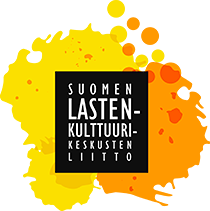Lifestyle, advertising and food culture – critical consumerims through media education

This material is intended for media education using the film Super Size Me as a starting point. It employs film education techniques to achieve objectives in consumer and health education and critical thinking. The tasks have been designed to stimulate activity and a critical approach. The aim is not to provide ready-made models or opinions but to get pupils to notice phenomena in everyday life and evaluate them critically.
Schools can divide the material and deal with it in different subjects. This includes art, language, social studies, home economics and health, for example.
Obesity is a growing problem in the United States. According to the film over half of Americans go out for a hamburger at least once a week. The main character in Super Size Me, Morgan, decides to investigate the effects of fast food on the body and begins a month of eating only junk food. He consumes several super size hamburger meals each day, which means an unbalanced diet and way too many calories. The film follows Morgan's life and changes in his health during this one-month period.
Obesity in Finnish children has increased significantly during the past twenty years. According to research, one reason behind spreading weight problems is eating habits, irregular mealtimes and insufficient exercise. There has been plenty of discussion concerning the role of the food industry in this regard. Marcos Kyprianou, the EU Commissioner who is responsible for Health and Consumer Protection, has called for the food industry to stop advertising targeted at children. In Finland regulations concerning advertising targeted at children are being revised to include provisions on food marketing. The point of departure is shared responsibility for the environment in which children grow up.
Advertising shapes consumer behaviour. The purpose of regulation is to prevent forms of advertising that are beyond the comprehension of children and young people. Schools can help young people adopt a healthy lifestyle. Matters concerning lifestyle and everyday choices are discussed in different subjects as well as guidance work.
Choices regarding food and consumption habits are part of culture and identity. The media and advertising have a key impact on youth culture. Helping young people understand the culture we live in is just as important as teaching them about healthy living. Advertising literacy is part of media and consumer education. Nutrition and consumer and health education help pupils learn the basics of well-being.
This material promotes the following basic education objectives:
Pupils should learn how to
- interpret other people's messages
- develop information management skills and compare, select and use information
- take a critical view of claims presented in the media and consider related ethical and esthetic values in communications
- identify skills that are important for protecting health and well-being and evaluate the significance of lifestyle, culture and the media from the viewpoint of health
- consider links between nutrition and consumer education and personal choices and actions
- make wise choices that promote well-being
- use health-related concepts and methods of acquiring information and utilize them to promote personal health
- act in a rational and responsible way as a consumer
- be aware of issues concerning values
- be aware of national culture in the area of nutrition and new perspectives as a result of internationalization and cultural diversity
- apply information representing different viewpoints





